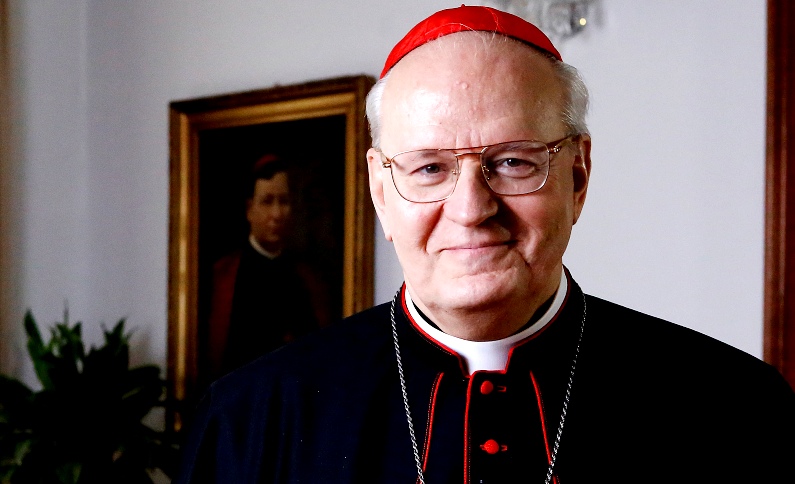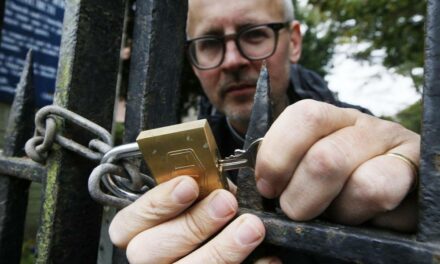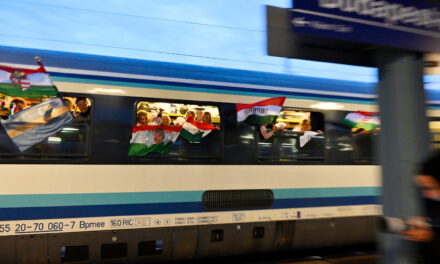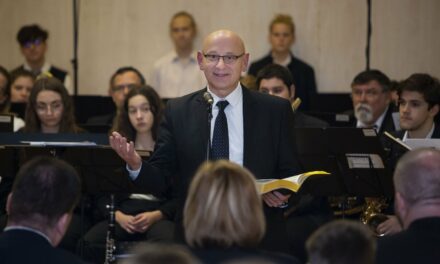"Jesus' sacrifice on the cross creates peace between God and man," said the cardinal.
Those who are truly at peace with God must be able to make sacrifices for peace with other people as well, said Cardinal Péter Erdő, Archbishop of Esztergom-Budapest, to MTI on the occasion of Easter.
The cardinal highlighted:
Jesus' sacrifice on the cross creates peace between God and man,
and those who experience this peace as a true love relationship feel their fellow human beings as brothers and are able to make sacrifices in order to live in peace with them.
"Creating peace always requires sacrifice, but when we measure the true value of things before God, it turns out that with peace and harmony, even here on earth, we have gained more than what we gave up by limiting our excessive ambitions," said the cardinal."In the last year, we have seen countless beautiful examples of helping love"
Speaking about the war in Ukraine, he evaluated it as follows: "in the last year, we have seen countless beautiful examples of helping love." From the beginning of the war, Hungarian society felt and understood what it had to do: to help those in the most difficult situations and those forced to flee as much as possible and in the way that suits them best.
When asked whether the Holy See can mediate in such and similar conflicts, the cardinal recalled the conflict between Argentina and Chile in the 1970s, in the resolution of which the Holy See assumed an important role.
He also mentioned the intercession of Pope Francis, which helped avoid an attack in Syria in 2013 that the United States of America had put in perspective in response to Syria's alleged use of chemical weapons.
It has happened at other times in history that the Holy See has mediated, but in the really big wars of the really big powers, the Holy See has not often been listened to recently. Along with
there may be moments when the Holy See interprets the opinions, aspirations and desires of many,
and this gives his action such strength that he is able to bring the parties in conflict closer to each other - he believed.
"The Easter confession is especially suitable for meeting Christ"
Speaking about the Easter holiday, Péter Erdő highlighted: the forty-day period of penitence, the preparation for meeting the resurrected Christ, ends on Holy Saturday. The main acts of repentance are already clearly stated in the Old Testament. These are the prayer; fasting, today rather abstinence, since we can refrain from many things, not only from eating and drinking, but also from, for example, social media; and almsgiving, that is, the practice of helping love.
He noted: this can also be of many kinds, since we can give not only in-kind donations or money, but also personal closeness, company, visits, and physical help. Furthermore, the monetary value of the material donation is not decisive either.Jesus speaks very nicely about this in the parable of the poor woman's two pennies, he recalled. Someone can donate generously despite their modest circumstances, while a well-to-do person can give a substantial donation half-heartedly, incidentally. As a rich man once said, you should give in such a way that it "hurts us". So when it occurs to us that this might be too much,
"then we have reached the limit, which really builds and shapes us".
Péter Erdő explained: "for us Catholics, an important element of preparation for the holiday is the Easter confession, which is particularly suitable for meeting Christ and adapting our lives to him". But not only to the Christ who even suffered for us out of love, but to the one who rose victorious from the dead and calls us to eternal happiness.
The Pope's visit is also a sign of attention and recognition
Speaking about his visit to Hungary at the end of April, Pope Cardinal Francis said that the program - which also includes meetings with the poor, refugees, homeless and sick children - shows that the Holy Father undertakes communion with suffering people, and that cumulatively sick children are particularly close to his heart. .
The Pope's visit is also a sign of attention and appreciation for the Hungarian people. The head of the church has previously been on pastoral visits to neighboring countries, Romania and Slovakia, and his trip to Hungary shows that he loves these peoples equally, and that is very important, the cardinal added.
He also spoke about the fact that "Christ's sacrifice of infinite value" is realized at every valid Mass, but at the Mass presented by the Pope, Christ's vicar on earth, the image of the universal church, the world church, appears visibly.
According to the cardinal's hope, the papal mass in Kossuth Square will confirm us in the fact that we are members of a large, world-wide community,
and this community does not stop at the borders of the globe: God is the one who wanted humanity, he is the one who sent Christ to redeem us, he is the one who set a goal for humanity and counts the lives of all of us individually.
(MTI)
Featured image: Ambrus Marcsi













